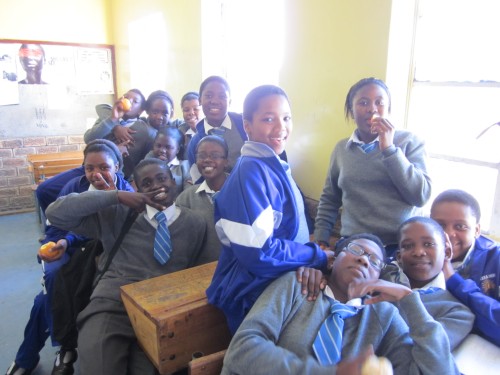SA project Manager Vimbai was in Vancouver for the past two weeks. Part of her visit included promoting the Vancouver South African Festival, as well as raising awareness of Education without Borders and its work in the Cape Town Gugulethu area.
Vimbai spoke to festival goers throughout the weekend, and concluded the event with an emotional and inspirational talk about the realities of South Africa, the country’s large income disparities, crime and violence, and what it is like to work with young people facing so many challenges. Vimbai’s talk, sobering at times, also drew wonderful examples of how despite such adversity, Education without Borders is making a difference in the lives of so many students.
Besides the film festival, Vimbai also spoke to various community groups while here in Vancouver. Organizations in the area of dance, music, and the local media got to learn first hand how Education without Borders is working to improve outcomes in the area of education. How we are working in english, arts, and math education, and how we are drawing on local talent to find local solutions.
Vimbai, it was wonderful having you here with us! Keep up your hard work in South Africa, and we look forward to hearing more news from you, Courtney, and the students.

